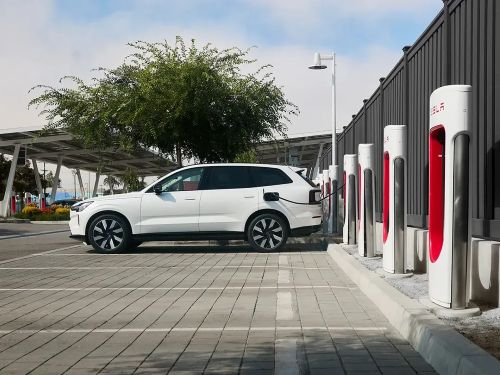


EV Extended Warranty: A Smart Investment for Electric Vehicle Owners
Introduction
As a professional EV chargers manufacturer based in China, Topper Company provides dependable electric vehicle charging stations and comprehensive charging solutions.
As electric vehicles (EVs) become mainstream, their rising popularity is transforming transportation. Celebrated for environmental benefits, advanced technology, and lower long-term fuel and maintenance costs, EVs are quickly becoming the preferred choice for many drivers. However, owning an EV doesn’t eliminate potential repair expenses—especially as the vehicle ages.
One of the smartest moves for EV owners is securing an extended warranty, also known as a vehicle service contract. While traditional vehicles benefit from these plans, EVs stand to gain even more due to their specialized, complex systems. In this article, we’ll explore what an EV extended warranty covers, why it’s worth investing in, and how it protects you from costly repairs.
What Is an EV Extended Warranty?
An EV extended warranty is a protection plan that activates after the original factory warranty expires—typically after 3 to 5 years or a certain mileage. It helps cover parts, labor, and repairs for many vital vehicle systems. For EVs, this includes high-tech and often expensive components not found in traditional cars. Unlike routine maintenance packages, an extended warranty shields you from unexpected breakdowns and repair bills, providing peace of mind as your EV ages.
What Does an EV Extended Warranty Cover?
Electric Vehicle System Components
Electric Motor: Converts electrical energy into motion—the heart of your EV.
Inverter: Converts battery DC power to AC for the motor.
Onboard Charger: Manages charging from external power sources.
Battery Pack: The most expensive and critical component, often costing thousands to replace.
These core parts keep your EV running, and warranty coverage helps avoid costly repairs.
Electrical System Parts
Though EVs lack combustion engines, they rely on complex electrical systems, including:
Sensors, relays, and switches
Interior/exterior lighting
Window motors and central locks
These ensure comfort, safety, and vehicle function.
Braking System
EVs use regenerative braking, but physical brake parts still wear out. Coverage often includes:
Brake master cylinder
ABS components
Brake lines and valves
This saves significant maintenance costs over time.
Suspension and Steering
A smooth, safe ride depends on:
Electric power steering modules
Control arms, bushings, shocks, and struts
Repairs can be costly, especially with modern electronic controls.
Hybrid Engine Components (for PHEVs and HEVs)
Some plans cover hybrid-specific parts like:
Hydraulic lifters
Engine oil pumps
Cylinder head gaskets
Hybrid cooling systems
This protects both electric and combustion elements in hybrid vehicles.
Why Invest in an EV Extended Warranty?
Avoid Costly Repairs
EV components require specialized repair expertise. Fixing an inverter or replacing a battery pack can cost thousands. A warranty protects you from unexpected expenses.
Battery Protection
Battery replacement can range from $4,000 to $15,000+. Many warranties now cover battery issues, safeguarding your EV’s most valuable asset.
Coverage for High-Tech Systems
Modern EVs include driver assistance, infotainment, sensors, and connectivity systems—repairs for which can be expensive and require manufacturer parts. An extended warranty helps with these costs.
Charging System Coverage
Failures in onboard chargers or charging ports can disable your vehicle. Warranties often cover diagnostics and repairs, minimizing disruption.
Boost Resale Value
A transferable warranty reassures buyers and can increase your EV’s resale price by showing it’s well protected.
Common EV Repair Costs Without a Warranty
| Component | Average Repair Cost |
|---|---|
| Battery Pack | $4,000 – $15,000+ |
| Electric Motor | $2,000 – $6,000 |
| Onboard Charger | $1,000 – $2,500 |
| Inverter | $1,200 – $3,500 |
| Infotainment System | $800 – $2,000 |
| Charging Port & Cabling | $500 – $1,500 |
| Brake System Components | $300 – $1,200 |
| Suspension or Steering | $700 – $2,000 |
One major repair could exceed the cost of a multi-year extended warranty plan.
How to Choose the Right EV Extended Warranty
EV-Specific Coverage: Ensure high-voltage parts (battery, inverter, motor, charger) are covered.
Battery Inclusion: Confirm battery coverage details, including conditions for degradation or failure.
Claims Process: Choose providers with a simple claims process and authorized repair networks.
Coverage Limits: Review caps on labor, parts, and total payout.
Transferability: A transferable warranty adds value if you sell your EV.
Conclusion
EVs are revolutionizing transportation, offering lower running costs and environmental advantages. However, their advanced technology brings unique repair risks. An extended warranty serves as a financial safety net, protecting you from costly repairs and providing peace of mind as your EV ages.
Whether you’re a new EV owner or have driven electric for years, investing in an extended warranty tailored to your vehicle’s needs is a smart step to keep your car—and your budget—secure.Know more about Google SEO Directory
